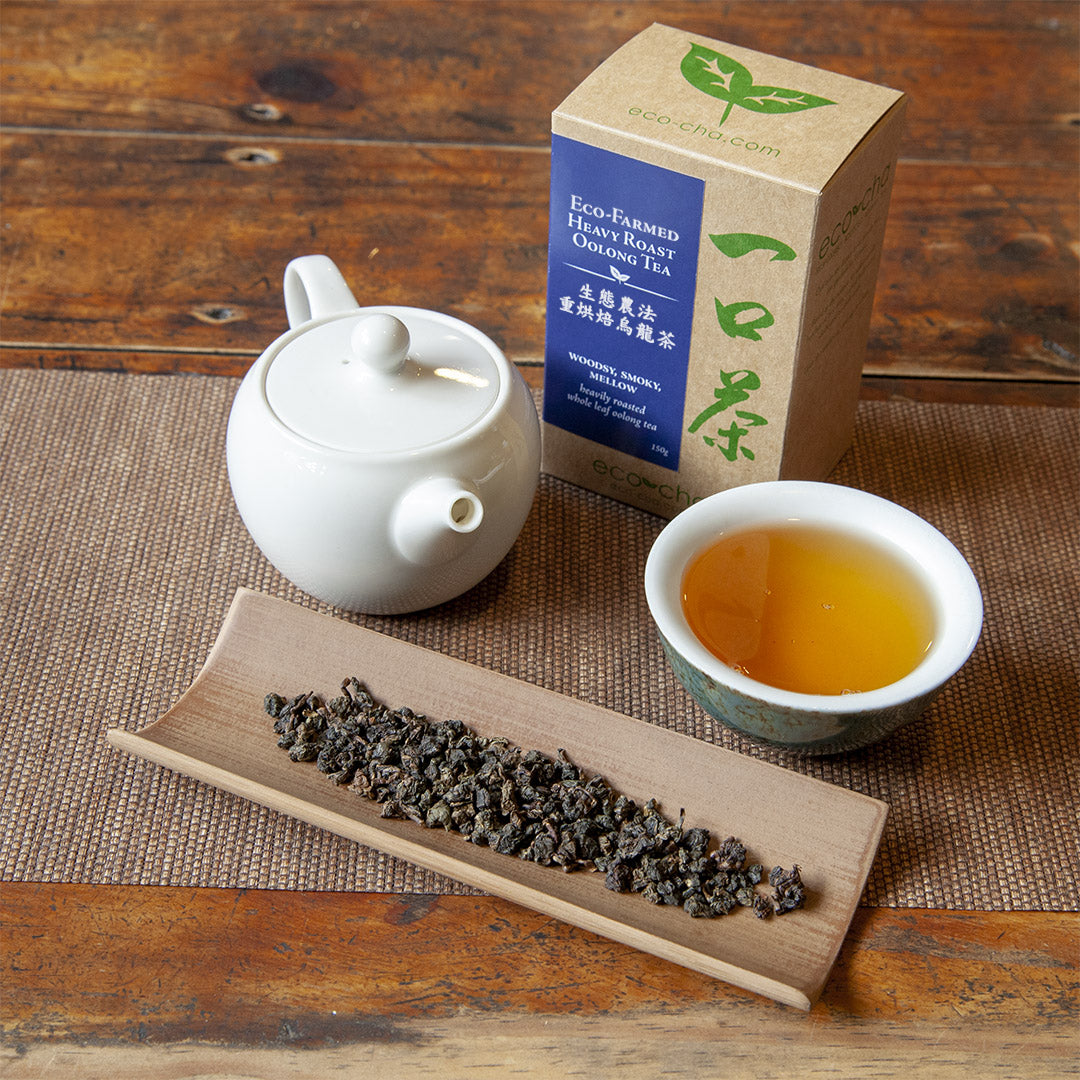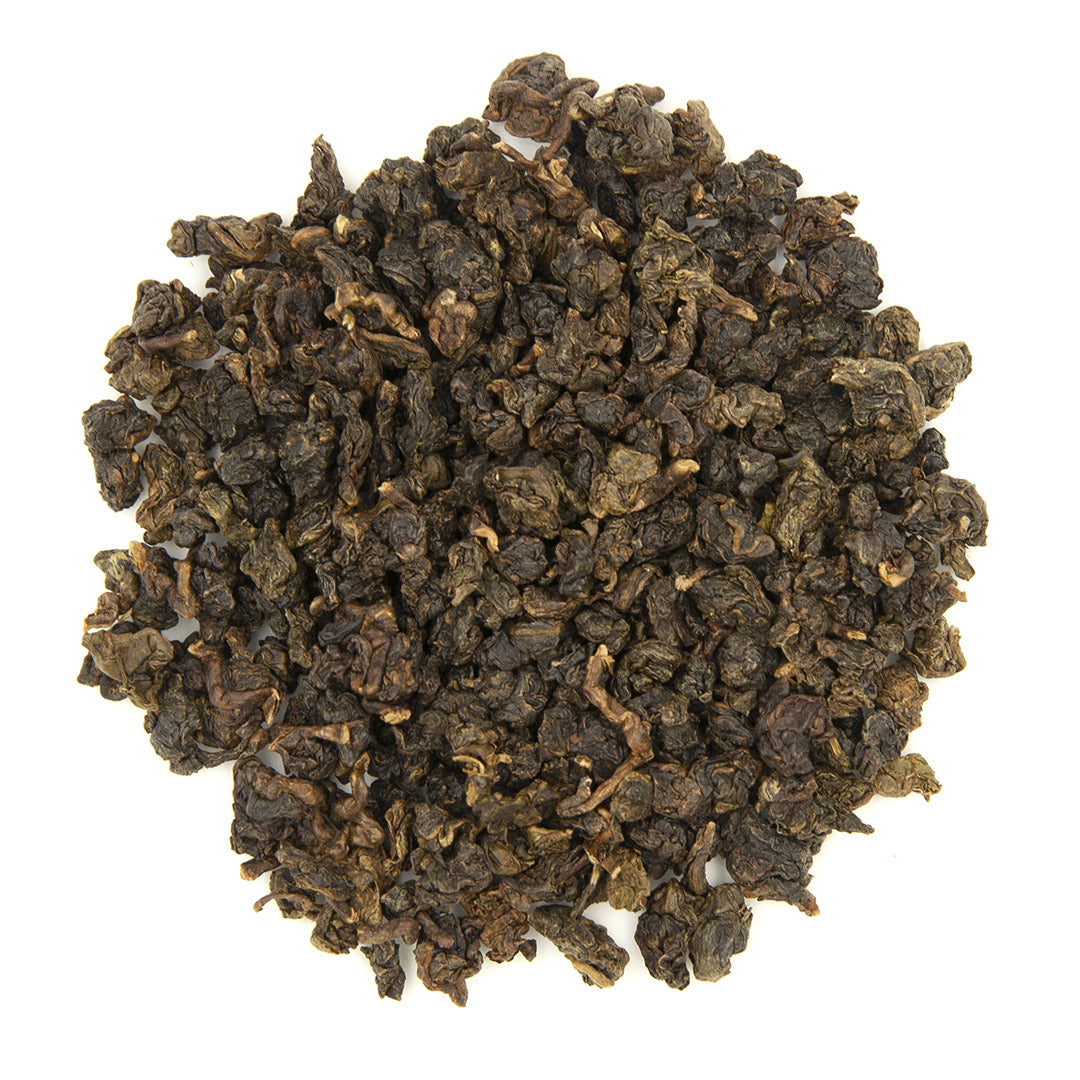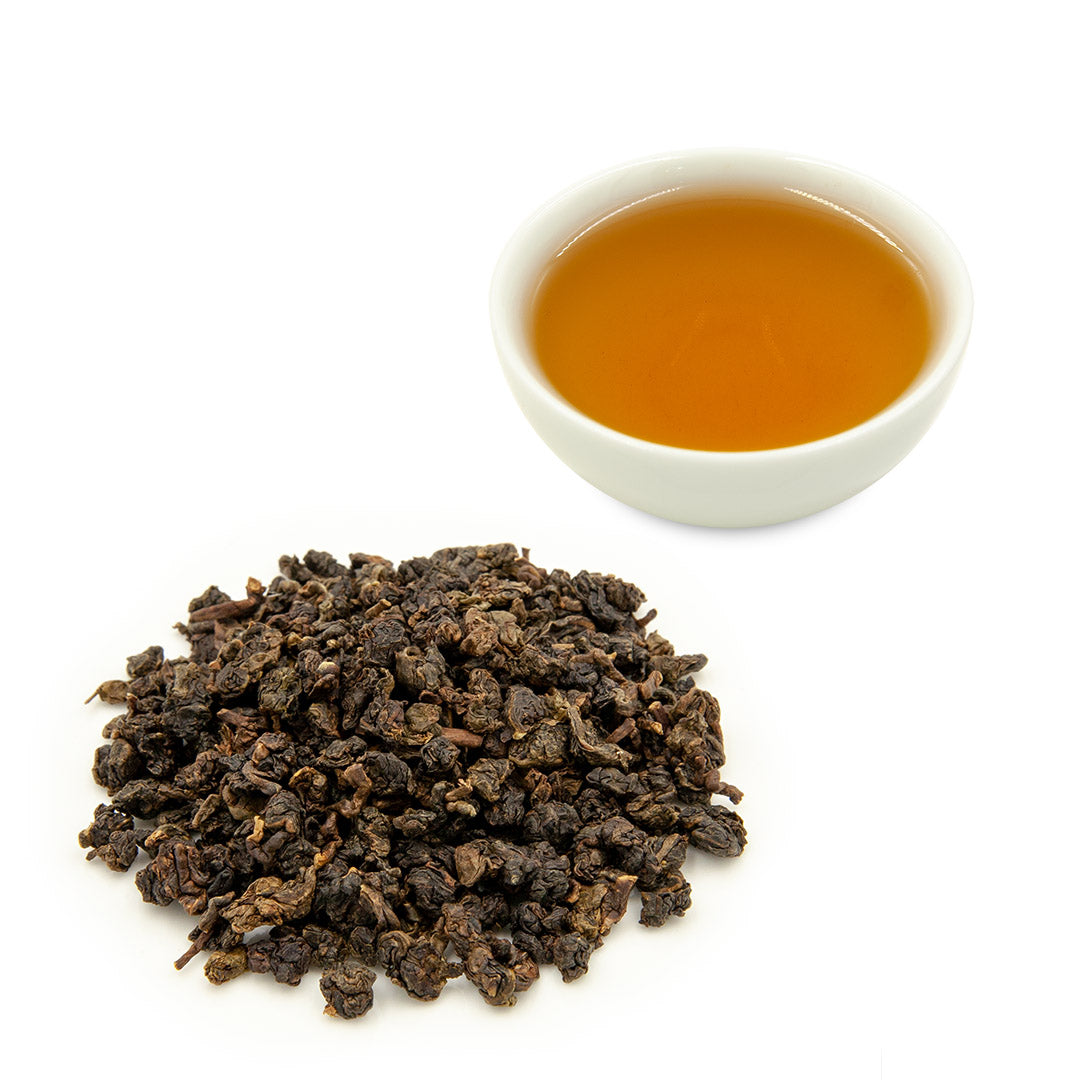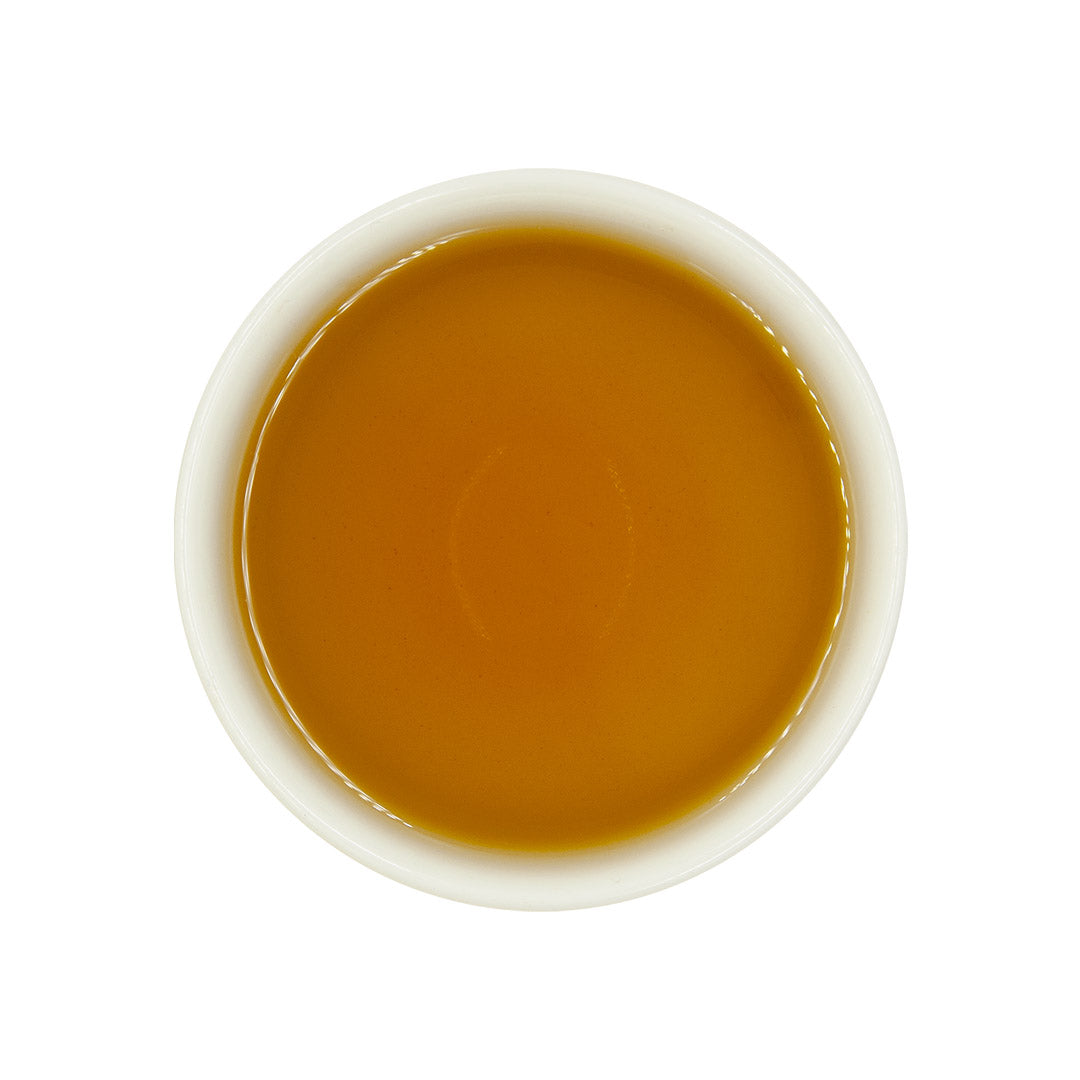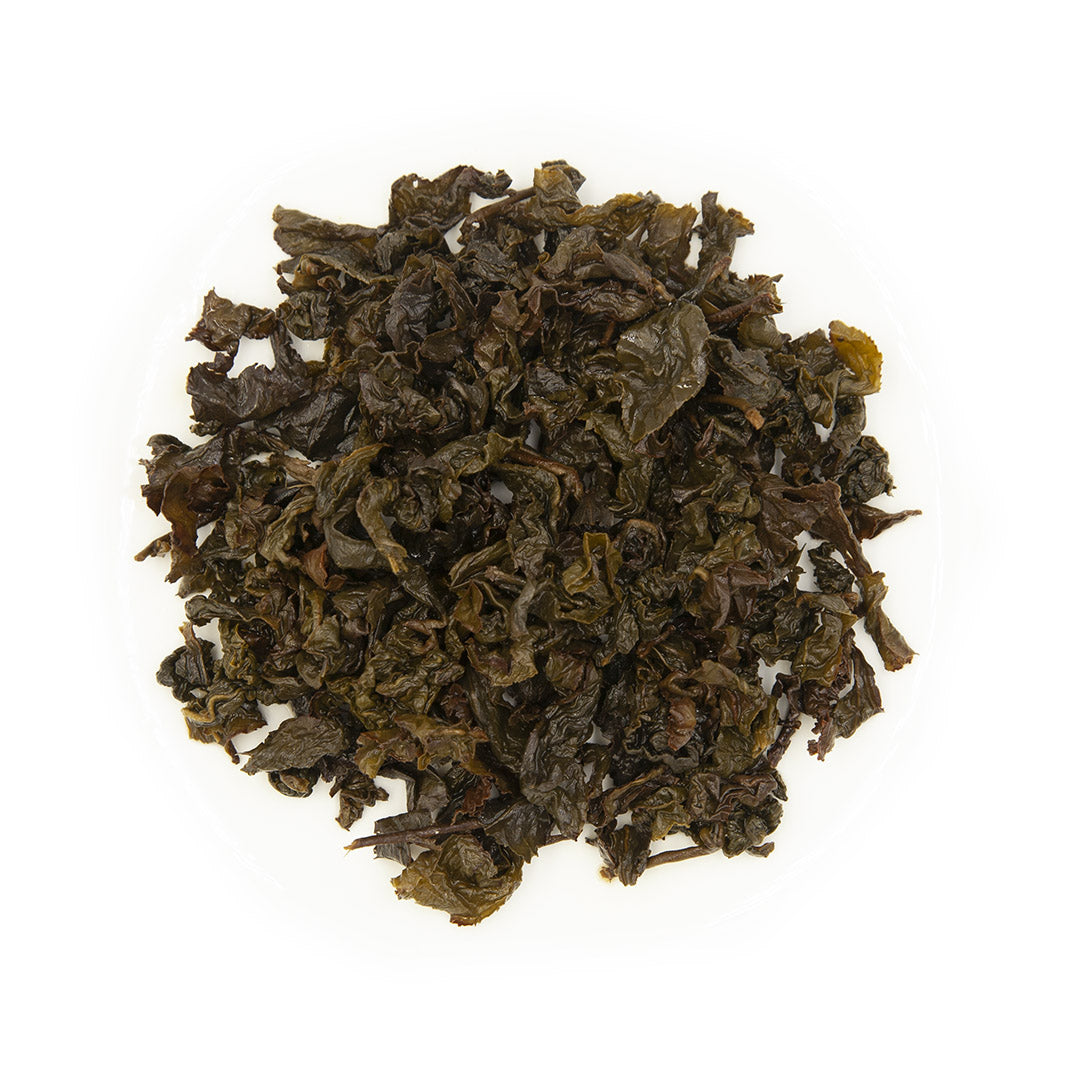Eco-Farmed Heavy Roast Oolong Tea
US$5
Please select all options.
-
Flavor: Deep woodsy aroma. Mellow, tangy/sweet, mineral notes. Subtle smoky, fruity aftertaste.
Garden: This source is the most innovative and progressive tea producer we know. A husband, wife and son team cooperate with neighboring farmers to produce an impressive array of organically cultivated tea in the historical tea growing region of Songbolin in Nantou County. From wild and heirloom tea strains to modern hybrid cultivars of tea, they have researched and developed eclectic processing methods to make some unique styles of tea. This tea type is perhaps their most novel that we've come across in terms of its processing and curing methods.
Harvest: About three years of roasting/resting completed in summer 2023, Songboling
Elevation: 400m
-
This batch of tea is a combination of Four Seasons Spring, Tsui Yu and Jin Xuan tea leaves that undergo medium-heavy oxidation in their processing upon being harvested. This combination of hybrid teas offers a broader, more balanced range of character, especially when undergoing these unique curing methods.
The proportionately mixed batch of tea leaves are then aged for one year to allow for post-production oxidation. The repeated roasting and resting process takes three years to complete! After a year of aging, they undergo an extensive roasting process. The leaves are roasted at low temperature for over 20 hours per session, for a total of three roasting sessions, with at least 3 months of "setting time" between each roasting.
After the batch of tea leaves has been roasted to the desired result, it is then aged again for one year to mellow and "settle" in its composition. Finally, the leaves are minimally roasted at low temperature to deplete any acquired moisture content before being vacuum sealed in preparation for sale. It offers a mellow, aged character with tangy/sweet and mineral notes, and a hint of smoke in the finish.
-
Mr. and Mrs. Xie, and now their son manage their cooperative of certified organic farms in a way that we that combines tradition with an eclectic knowledge of tea production. They have an integrated understanding of what works in terms of tea cultivation and processing as well as consumer market trends. After visiting them numerous times in their home and gradually learning of their overall production from their humble representation that would only be offered when warranted by our relentless questions, we discovered this tea type that is unique in our knowledge of tea making.
This artisan has taken tea making to another level. These processing and curing methods are unique in that they are an integration of various traditional and modern tea-making methods to produce a character of tea that is reminiscent of Muzha Tieguanyin from Northern Taiwan. It is not comparable, however, given that the tea types used and even the processing methods are quite different. It is simply the character and flavor notes that are experienced in brewing a pot of these tea leaves that bring a traditional Taiwanese Tieguanyin Oolong to mind.
-
Mug: 6g tea in 350ml 95°C water. Steep for 3 minutes. Drink and add hot water as desired. Adjust to taste.
Cold Brew: Use 4g of tea per liter of water. Brew tea at room temperature for 2-3 hours, and enjoy. Or you can put your cold brew bottle in the fridge to brew overnight and be ready to drink the next day.
Gongfu Brew: Start with a 1:18 leaf to water ratio. Use boiling temperature water and brew for about 50 seconds. Increase brewing time with each successive brew. The leaves can be brewed 6-7 times. Adjust to taste.
This is my second time buying this tea. The roasting definitely added another flavor that did not exist in the original high mountain tea leaves. I could taste mild honey and it does not feel bitter at all. Very smooth and comforting tea, not boring but not too flamboyant. Very well balanced tea.
Thank you, JYH!
This tea stands apart in its character. We believe it is due to the aging process in addition to the extensive roasting process. It's mellow as well as rich. It's more subtle in flavor, but the more you drink it the more it reveals its modest complexity. You may want to try a similar tea for a daily drinker that is even more reasonably priced, and that is our Roasted Tsui Yu Oolong Tea. Thanks for your review. It's very helpful for us to receive feedback.
Andy
I haven’t finished my oolong and I am ready to order more. I am in love with quality of the tea and its flavor. I steep my tea and enjoy it and then I steep it again and it keeps giving! I am also very appreciative of how fast it was delivered. Thank you.
Not my cup of tea
Hi Vanessa,
Sorry to hear that! Can you tell us more? What was it that you found unpleasant? I just pulled out a sample and brewed it after seeing your review. First thing I'm noticing is that it brews a more concentrated cup of tea than most oolongs. So I will take note and use less tea leaves to water ratio in the future. I also updated the brewing guide on this product page to recommend using less leaves.
We'd really love to hear more if you have a moment to share!
In tea,
Andy
This tea is rolled (loose pearls) and the leaves unroll as tips less than 2 inches long. While it is 'Heavy Roast' is is neither high acidity, nor smoky. It seems like a very pure tea with a rich flavor. I really enjoy this tea in teh morning.


